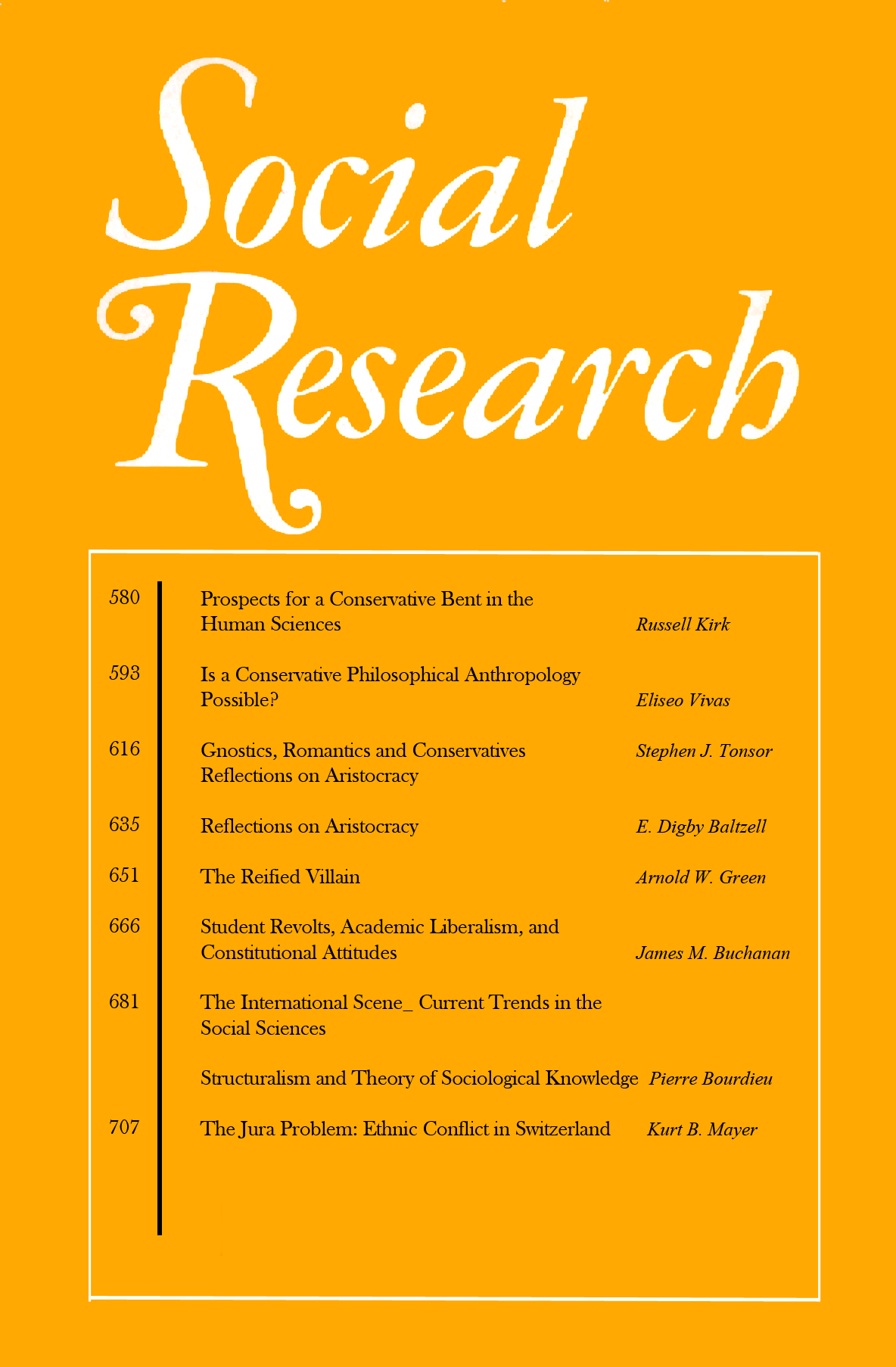Ever since politics, economics, sociology, and related disciplines became “scientific” early in the nineteenth century, an inclination toward ardent liberalism, and often toward radical ends, has been discernable among social scientists. To an extent less marked, this tendency has existed among modern historians. There have been eminent exceptions, of course; but I refer to the general drift of scholars in these fields.
This article is addressed to the question whether a conservative philosophical anthropology is possible--using the term “philosophical anthropology” in the European sense, to refer to a more or less systematic body of speculative knowledge about man.
Gnostic political and ideological movements were not in the thirteenth century and are not in the 20th simple and unitary in form. Then as now, complexity, variety and disguise mark the gnostic movements.
Men have always been concerned with the social and political organization of leadership and the proper distribution of power and authority. The dictionary defines aristocracy as the “the rule of the best.” All men everywhere would surely agree that this was the ideal toward which every society should strive. But they have never been able to agree on who were the “best,” how the “best” were to be selected and elevated to positions of leadership, nor in whose interests the “best” should rule.
The editor of Horizon introduced his Spring 1968 issue with these words: “our authors disagree on some things, but they all accept the hippies as a phenomenon that society will ignore or laugh off or try to suppress at its peril.” Are hippies, then, any less than straights, part of, members of, society? And is it not equally true that only individuals or groups of limited size with varying and even conflicting affiliations and loyalties, ignore or laugh off or suppress?
Should the student have a share in controlling university policy and structure equal to or comparable with that exercised by the salaried administrator or tenured professor? The case to be made for the student’s side of this currently relevant issue deserves more careful consideration than it is often accorded.
The originality of the trend in anthropological research called structuralism may be said to rest, paradoxically, on the fact that it has greatly contributed to wiping out the fictitious originality assigned to anthropological knowledge by the spontaneous theory of such knowledge. The risk of underestimating or overestimating the originality of this trend, which reasonably deserves less than mathematics or modern physics the name of structuralism, is due to the fact that the principles it has stirred up again are expressly constituted in their specifically anthropological form are diametrically opposed to the spontaneous theory of knowledge of man and of society.
In a world torn asunder by racial strife and ethnic conflicts Switzerland is often cited as a model case for cultural coexistence, a nation which has managed to weld four different language groups and two major religions into a stable and harmonious unity. Interestingly, and largely unknown to the outside world, Switzerland itself furnishes proof that if the divisions between the linguistic and religious groups do not overlap but coincide the result is conflict instead of harmony.

